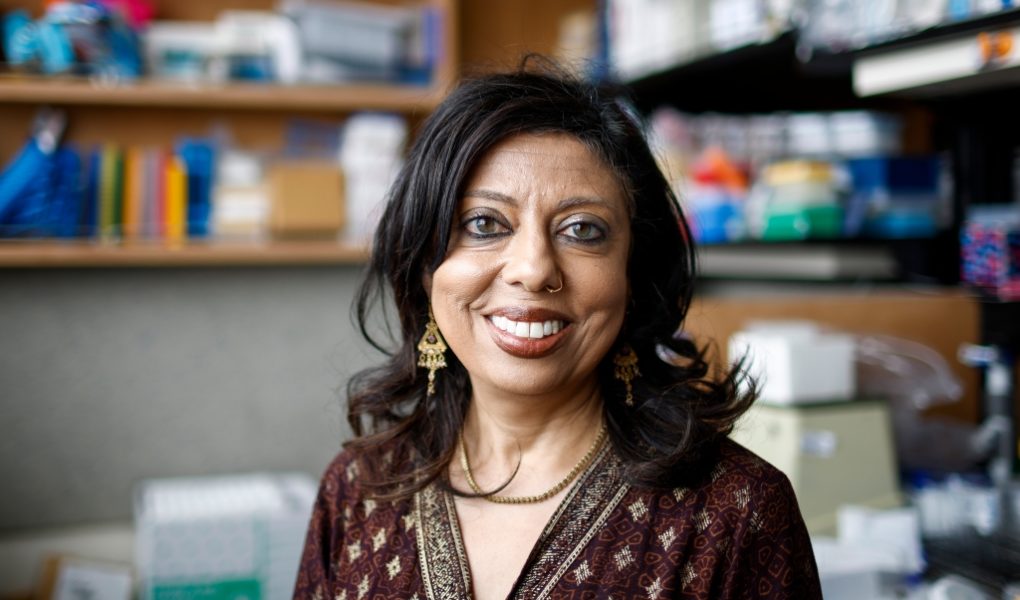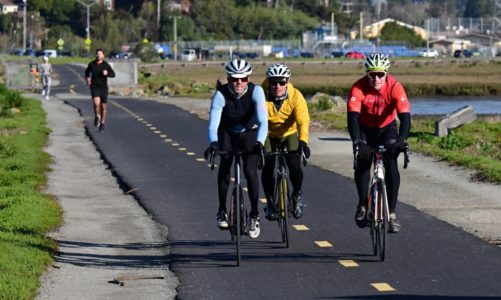
UC-San Francisco Infectious disease expert Monica Gandhi has found herself at the center of many heated COVID-19 debates the past three years.
But in her new book Endemic: A Post-Pandemic Playbook, she is combining decades of experience in infectious diseases and HIV particularly, with her unique position on the sharp edge of pandemic policies to present a 10-point plan to prepare for future pandemics.
She discussed the book and her thoughts on what went right or wrong during COVID-19. Her answers have been edited for brevity and clarity:
Q: What does the title of your book, Endemic, mean, and why did you want to write this book now?
A: In the concept of infectious disease epidemiology, there are pathogens that we hope to get rid of in the world, and there are pathogens that we’re never going to get rid of. A pathogen that we’re never going to get rid of, unfortunately, is called endemic, meaning it gets to a stage where we live with it.
It starts out in a pandemic form, causing a lot of severe disease and mortality, and then it settles.
At the beginning of COVID I felt like there was a surprising lack of understanding infectious disease epidemiology, in how public health was responding to it.
It just seemed like there was this idea that we by human behavior can rid a region of a virus. But, I was just surprised because it just didn’t make sense that we could eliminate or eradicate it. It just didn’t make sense in terms of the biology of the virus.
Q: What about the COVID pandemic has been similar to previous pandemics and what’s been different this time around?
A: It was actually most similar, in a way, to the influenza pandemic of 1918, and actually not very similar to its counterparts SARS and MERS. Those two human coronaviruses in this century were really limited in terms of their impact. They had a very high fatality rate, but they didn’t spread very quickly, and we could shut them down quick.
This coronavirus acted much more like influenza, which has a very high mutation rate.
During the influenza pandemic absolutely there were lockdowns, but they were very short. What they were trying to do during that lockdown was get the hospitals ready, figure everything out, figure out how it spread, and tell the population to do other things like wear masks and stay away from each other and stay outside.
It was the most progressive cities that kept the schools open in 1918, and that was really different than this pandemic where the blue state closed their schools for longer than the red states.
Q: In the book you say “public health is a service industry, not a police force.” Can you explain what you mean?
A: Since I am in the field of HIV, I manage a lot of addiction, and I manage a lot of STDs, and in those fields the idea of harm reduction is that people have human needs and society has needs, and you don’t make it just about the pathogen. You deal with the holistic needs of the individual in society, and you incorporate pathogen control into societal and individual needs.
In addiction, if you tell someone to just stop, they’re going to secretly go and use and maybe use with needles that are shared. But if you acknowledge that there’s a true addiction, and addiction is a physiologic state, then if you give them clean needles you can minimize the harm. It’s essentially just acknowledging that addiction is real, acknowledging, for example, that sexual needs are real. Don’t tell people to just stay away from each other.
So what would be acknowledging that with COVID? That school for kids is really needed, or that people get lonely and socially isolated when you’re telling them that they have to stay away from other people. And that can cause other effects, like mental health effects. It’s just kind of putting the problem into the context of other needs.
Using the police and using coercion, I don’t think it is a good way to do public health. Instead, just tell people how to stay safe.
Q: One of your principles for how to deal with future pandemics is “resources before restrictions,” why is that important?
A: The idea is that instead of restricting the entire population, like with mask mandates, capacity limits, closing down businesses, you give resources to those who need it the most. It’s providing resources to do the things that make sense.
If you have COVID, you need to stay home and isolate, so give people a resource or a way to stay home.
We don’t have a universal health care system, so when they shut down the city people were losing their insurance left and right. All these people who had HIV were trying to come to our clinic because they just suddenly lost all their insurance.
You had to provide resources to people when you shut down businesses. Instead you could provide resources for people to test and to stay home when they’re positive, and then eventually get vaccinated, which in my mind is the key to unlock a pandemic.
Q: You identify as “left of left” and you argue for universal health care in the U.S., but a lot of people associate your views on mask mandates and school closings more with conservatives. Can you explain how that happened?
A: I still have a Bernie Sanders sticker on my car from 2016, but I’m even ‘lefter’ than that, and what I mean by that is I’m actually really interested in global poverty. That’s what’s driven me into infectious disease.
What ended up happening with COVID is something got topsy turvy, it got associated with the left to be restrictive, and to close schools. Yet, that response favors the rich. So the public schools in San Francisco are closed for a very long time, but the private schools open more quickly. My children got to go to school but (my patients) didn’t get their kids to be in school, and I felt really guilty.
I felt really bad that I was part of the elite the public health response favored. I used to think about the left as favoring the working class, but the left did not favor the working class in terms of the COVID response.
It just completely confused me. My positions were more consistent with red state governors, and that led to a lot of unease. I felt really uncomfortable in my own skin. I looked towards all my patients, and they’re so lonely. they’re so miserable. They are working and their 8-year-old is at home alone online. Do they see what we we are doing to the poor?
Monica Gandhi, MD
Age: 54
Title: professor of medicine and associate division chief of the Division of HIV, Infectious Diseases, and Global Medicine at UCSF/ San Francisco General Hospital.
Residence: San Francisco
Education: University of Utah, Harvard Medical School
Family: two sons, 13 and 15 years old
Five things about Monica Gandhi
- Really likes Russian novels, reading Dostoyevsky’s “Devils” right now.
- Enjoys dark movies, like Danish films called “Celebration,” except it’s definitely not one.
- Connected to Indian Hinduism, after grieving processes for husband involved a lot of spirituality.
- Got two bonded cats during the pandemic, but one ran away so she got new buddy for her lonely cat, and then the second cat came back, so now she has three cats.
- Just loves being an HIV doctor.
𝗖𝗿𝗲𝗱𝗶𝘁𝘀, 𝗖𝗼𝗽𝘆𝗿𝗶𝗴𝗵𝘁 & 𝗖𝗼𝘂𝗿𝘁𝗲𝘀𝘆: www.mercurynews.com
𝗙𝗼𝗿 𝗮𝗻𝘆 𝗰𝗼𝗺𝗽𝗹𝗮𝗶𝗻𝘁𝘀 𝗿𝗲𝗴𝗮𝗿𝗱𝗶𝗻𝗴 𝗗𝗠𝗖𝗔,
𝗣𝗹𝗲𝗮𝘀𝗲 𝘀𝗲𝗻𝗱 𝘂𝘀 𝗮𝗻 𝗲𝗺𝗮𝗶𝗹 𝗮𝘁 dmca@enspirers.com




